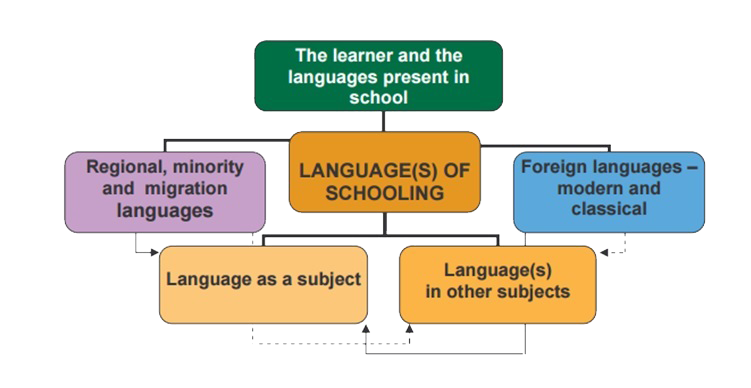Getting started
The proposed whole-school policy is designed in such a way that languages taught as subjects are not treated in isolation and language and non-language instruction overlap so that all subject teaching is also language teaching. This consistent implementation of content-based language(s) instruction is transferable to all non-language content lessons.
These pages will inform you about the activities that partner schools implemented during the term of the PlurCur project. In some schools, these activities have become a regular part of school life.
Here are some examples of school projects presented on the website:
- Eurolanguages
Jonas Erin, Cécile Crespin, Yannick Hernandez | Lycée Victor et Hélène Basch, France
The role of whole school approaches in language education
PluCur seeks to encourage a global approach to all the languages learnt and used in schools.
These include:
- the “language of schooling” which is usually the national language of the country or region (for example French in France);
- languages spoken at home by the learners (e.g. languages of migrants);
- foreign languages learnt as subjects in the school (e.g. an English classroom in Poland);
- in some cases classical languages (e.g. Latin, Greek)
- as well as the languages used to teach different subject areas (e.g. German as a language of instruction in a science classroom in Romania).

For further information, see the Platform of resources and references for plurilingual and intercultural education, Council of Europe.
Learners develop their own "repertoires" of the different languages they know and use. The competences acquired in one language can be of use in learning another one and there is complementarity and interplay among the languages they know.
Whole school approaches create synergies between the teaching and learning of the national/regional language, the different foreign languages and the other languages present in schools. They also raise awareness of plurilingualism and practical opportunities for students to develop their repertoires involving several different languages. The project explores different ways in which this can be achieved.